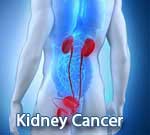Stomach Gastric Cancer
Treatment and Diagnosis:
If you have a symptom that suggests stomach cancer, your doctor must find out whether it is really due to cancer or to some other cause. Your doctor may refer you to a gastroenterologist, a doctor whose specialty is diagnosing and treating digestive problems.
The doctor asks about your personal and family health history. You may have blood or other lab tests. You also may have:
- Physical exam -- The doctor checks your abdomen for fluid, swelling, or other changes. The doctor also feels for swollen lymph nodes. Your skin and eyes are checked to see if they seem yellow.
- Upper GI series -- The doctor orders x-rays of your esophagus and stomach. The x-rays are taken after you drink a barium solution. The solution makes your stomach show up more clearly on the x-rays.
- Endoscopy -- The doctor uses a thin, lighted tube (endoscope) to look into your stomach. The doctor first numbs your throat with an anesthetic spray. You also may receive medicine to help you relax. The tube is passed through your mouth and esophagus to the stomach.
- Biopsy -- The doctor uses an endoscope to remove tissue from the stomach. A pathologist checks the tissue under a microscope for cancer cells. A biopsy is the only sure way to know if cancer cells are present.
The doctor uses an endoscope to remove tissue from the stomach. A pathologist checks the tissue under a microscope for cancer cells. A biopsy is the only sure way to know if cancer cells are present.
- How will the biopsy be done?
- Will I have to go to the hospital?
- Will I have to do anything to prepare for it?
- How long will it take? Will I be awake? Will it hurt?
- Are there any risks? What are the chances of infection or bleeding after the procedure?
- How long will it take me to recover? When can I resume my normal diet?
- How soon will I know the results? Who will explain them to me?
- If I do have cancer, who will talk to me about next steps? When?
Staging
To plan the best treatment, your doctor needs to know the extent (stage) of the disease. The stage is based on whether the tumor has invaded nearby tissues, whether the cancer has spread, and if so, to what parts of the body. Stomach cancer can spread to the lymph nodes, liver, pancreas, and other organs. The doctor may order tests to check these areas:
- Blood tests -- The lab does a complete blood count to check for anemia. Blood tests also show how well your liver is working.
- Chest x-ray -- An x-ray machine takes pictures of your lungs. The doctor can then study these pictures on film. Tumors in your lungs can show up on the x-ray.
- CT scan -- An x-ray machine linked to a computer takes a series of detailed pictures of your organs. You may receive an injection of dye. The dye makes abnormal areas easier to see. Tumors in your liver, pancreas, or elsewhere in the body can show up on a CT scan.
- Endoscopic ultrasound -- The doctor passes a thin, lighted tube (endoscope) down your throat. A probe at the end of the tube sends out sound waves that you cannot hear. The waves bounce off tissues in your stomach and other organs.
- Laparoscopy -- A surgeon makes small incisions (cuts) in your abdomen. The surgeon inserts a thin, lighted tube (laparoscope) into the abdomen. The surgeon may remove lymph nodes or take tissue samples for biopsy.
Sometimes staging is not complete until after surgery to remove the tumor and nearby lymph nodes. These are the stages of stomach cancer:
- Stage 0: The cancer is found only in the inner layer of the stomach. It is carcinoma in situ.
- Stage I is one of the following: The tumor has invaded only the submucosa. (The picture in section 2 shows the layers of the stomach.) Cancer cells may be found in up to 6 lymph nodes. Or, the tumor has invaded the muscle layer or subserosa. Cancer cells have not spread to lymph nodes or other organs.
- Stage II is one of the following: The tumor has invaded only the submucosa. Cancer cells have spread to 7 to 15 lymph nodes. Or, the tumor has invaded the muscle layer or subserosa. Cancer cells have spread to 1 to 6 lymph nodes. Or, the tumor has penetrated the outer layer of the stomach. Cancer cells have not spread to lymph nodes or other organs.
- Stage III is one of the following: The tumor has invaded the muscle layer or subserosa. Cancer cells have spread to 7 to 15 lymph nodes. Or, the tumor has penetrated the outer layer. Cancer cells have spread to 1 to 15 lymph nodes. Or, the tumor has invaded nearby organs, such as the liver or spleen. Cancer cells have not spread to lymph nodes or to distant organs.
- Stage IV is one of the following: Cancer cells have spread to more than 15 lymph nodes. Or, the tumor has invaded nearby organs and at least 1 lymph node. Or, cancer cells have spread to distant organs.
- Recurrent cancer: The cancer has come back (recurred) after a period of time when it could not be detected. It may recur in the stomach or in another part of the body.
Phone Numbers Reach Us -
India & International : +91 9371770341
Treatment
- Getting a Second Opinion
- Treatment Methods
- Surgery
- Chemotherapy
- Radiation Therapy
Many people with stomach cancer want to take an active part in making decisions about their medical care. It is natural to want to learn all you can about the disease and your treatment choices. However, shock and stress after the diagnosis can make it hard to think of everything you want to ask your doctor. It often helps to make a list of questions before an appointment.
To help remember what the doctor says, you may take notes or ask whether you may use a tape recorder. You may also want to have a family member or friend with you when you talk to the doctor - to take part in the discussion, to take notes, or just to listen.
You do not need to ask all your questions at once. You will have other chances to ask your doctor or nurse to explain things that are not clear and to ask for more details.
Your doctor may refer you to a specialist who has experience treating stomach cancer, or you may ask for a referral. Specialists who treat stomach cancer include gastroenterologists, surgeons, medical oncologists, and radiation oncologists.
Getting a Second Opinion
Before starting treatment, you might want a second opinion about your diagnosis and treatment plan. Many insurance companies cover a second opinion if you or your doctor requests it. It may take some time and effort to gather medical records and arrange to see another doctor. Usually it is not a problem to take several weeks to get a second opinion. In most cases, the delay in starting treatment will not make treatment less effective. To make sure, you should discuss this delay with your doctor. Sometimes people with stomach cancer need treatment right away.
Treatment Methods
The choice of treatment depends mainly on the size and place of the tumor, the stage of disease, and your general health. Treatment for stomach cancer may involve surgery, chemotherapy, or radiation therapy. Many people have more than one type of treatment.
Your doctor can describe your treatment choices and the expected results. You and your doctor can work together to develop a treatment plan that meets your needs.
Cancer treatment is either local therapy or systemic therapy:
- Local therapy: Surgery and radiation therapy are local therapies. They remove or destroy cancer in or near the stomach. When stomach cancer has spread to other parts of the body, local therapy may be used to control the disease in those specific areas.
- Systemic therapy: Chemotherapy is systemic therapy. The drug enters the bloodstream and destroys or controls cancer throughout the body.
Because cancer treatments often damage healthy cells and tissues, side effects are common. Side effects depend mainly on the type and extent of the treatment. Side effects may not be the same for each person, and they may change from one treatment session to the next.
Before treatment starts, your health care team will explain possible side effects and suggest ways to help you manage them. NCI provides helpful booklets about cancer treatments and coping with side effects. These include Chemotherapy and You, Radiation Therapy and You, and Eating Hints for Cancer Patients.
At any stage of disease, supportive care is available to relieve the side effects of treatment, to control pain and other symptoms, and to ease emotional concerns.
You may want to talk to your doctor about taking part in a clinical trial, a research study of new treatment methods. The section on "The Promise of Cancer Research" has more information about clinical trials.
You may want to ask your doctor these questions about treatment:
- What is the stage of the disease?
- What are my treatment choices? Which do you suggest for me? Why?
- Would a clinical trial (research study) be a good choice for me?
- Will I have more than one kind of treatment?
- What are the expected benefits of each kind of treatment?
- What are the risks and possible side effects of each treatment?
- What can we do to control my side effects?
- How else can I take care of myself during treatment?
- How will treatment affect my normal activities? Am I likely to have eating or other problems?
- Whom should I call if I have problems during treatment?
- What is the treatment likely to cost? Does my insurance cover this treatment?
- How often should I have checkups?
Surgery
Surgery is the most common treatment for stomach cancer. The type of surgery depends on the extent of the cancer. There are two main types of stomach cancer surgery:
- Partial (subtotal) gastrectomy: The surgeon removes the part of the stomach with cancer. The surgeon also may remove part of the esophagus or part of the small intestine. Nearby lymph nodes and other tissues may be removed.
- Total gastrectomy: The doctor removes the entire stomach, nearby lymph nodes, parts of the esophagus and small intestine, and other tissues near the tumor. The spleen also may be removed. The surgeon then connects the esophagus directly to the small intestine. The surgeon makes a new "stomach" out of tissue from the intestine.
It is natural to be concerned about eating after surgery for stomach cancer. During surgery, the surgeon may place a feeding tube into your small intestine. This tube helps you get enough nutrition while you heal. Information about eating after surgery is in the "Nutrition" section.
The time it takes to heal after surgery is different for each person. You may be uncomfortable for the first few days. Medicine can help control your pain. Before surgery, you should discuss the plan for pain relief with your doctor or nurse. After surgery, your doctor can adjust the plan if you need more pain relief.
Many people who have stomach surgery feel tired or weak for a while. The surgery also can cause constipation or diarrhea. These symptoms usually can be controlled with diet changes and medicine. Your health care team will watch for signs of bleeding, infection, or other problems that may require treatment.
You may want to ask your doctor these questions about surgery:
- What kind of surgery do you recommend for me?
- Will you remove lymph nodes? Will you remove other tissue? Why?
- How will I feel after surgery?
- Will I need a special diet?
- If I have pain, how will you control it?
- How long will I be in the hospital?
- Am I likely to have eating problems? Will I need a feeding tube? If so, for how long? How do I take care of it? Who can help me if I have a problem?
- Will I have any lasting side effects?
Chemotherapy
Chemotherapy uses anticancer drugs to kill cancer cells. The drugs enter the bloodstream and can affect cancer cells all over the body.
Most people who receive chemotherapy have it after surgery. Radiation therapy may be given along with chemotherapy.
Anticancer drugs for stomach cancer are usually injected into a blood vessel. But some drugs may be given by mouth. You may have your treatment in a clinic at the hospital, at the doctor's office, or at home. Some people may need to stay in the hospital during treatment.
The side effects of chemotherapy depend mainly on the specific drugs and the dose. The drugs affect cancer cells and other cells that divide rapidly:
- Blood cells: These cells fight infection, help blood to clot, and carry oxygen to all parts of your body. When drugs affect your blood cells, you are more likely to get infections, bruise or bleed easily, and feel very weak and tired.
- Cells in hair roots: Chemotherapy drugs can cause hair loss. Your hair will grow back, but it may be somewhat different in color and texture.
- Cells that line the digestive tract: Chemotherapy can cause poor appetite, nausea and vomiting, diarrhea, or mouth and lip sores.
The drugs used for stomach cancer also may cause a skin rash or itching. Your health care team can suggest ways to control many of these side effects.
You may want to ask your doctor these questions about chemotherapy:
- Why do I need this treatment?
- Which drug or drugs will I have?
- How do the drugs work?
- When will treatment start? When will it end?
Radiation Therapy
Radiation therapy (also called radiotherapy) uses high-energy rays to kill cancer cells. It affects cells only in the treated area.
The radiation comes from a large machine outside the body. Most people go to a hospital or clinic for treatment. Treatments are usually 5 days a week for several weeks.
Side effects depend mainly on the dose of radiation and the part of your body that is treated. Radiation therapy to the abdomen may cause pain in the stomach or the intestine. You may have nausea and diarrhea. Also, your skin in the treated area may become red, dry, and tender.
You are likely to become very tired during radiation therapy, especially in the later weeks of treatment. Resting is important, but doctors usually advise patients to try to stay as active as they can.
Although the side effects of radiation therapy can be distressing, your doctor can usually treat or control them. Also, side effects usually go away after treatment ends.
You may want to ask your doctor these questions about radiation therapy:
- Why do I need this treatment?
- When will the treatments begin? When will they end?
- How will I feel during treatment?
- How will we know if the radiation treatment is working?
- Are there any lasting effects?
Phone Numbers Reach Us -
India & International : +91 9371770341





































